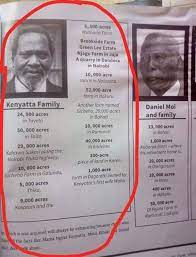Nairobi kenya
Kenya’s President Kenyatta has said Kenya is prioritizing the implementation of sustainable blue economy programs because of the sector’s potential to accelerate the country’s development.
Kenyatta said the shrinking land-based resources won’t be adequate to sustain a rising world population in the long run hence the need for countries to factor the blue economy in their development planning.
“From the very onset, there was a very clear recognition for some of us those resources that were going to be available especially in this era of climatic change from land based resources, we were slowly and slowly depleting through increase in population growth, through desertification and so many other issues,” Uhuru said.
Kenyatta, who spoke during a meeting of Small Island Developing States (SIDS) held on the sidelines of the 74th Session of the UN General Assembly (UNGA) in New York, said Kenya is keen on developing its blue economy resources because of the immense potential the sector holds for wealth and employment creation.
“And it came to dawn that our future lay also in being able to look at what our oceans have to offer. And in so doing, we realized the huge and vast potential that our oceans offer both for economic growth, development and employment. But also as food resources and the incredible wealth that lies underneath,” Kenyatta said.
Uhuru said Kenya’s leading role in the push for sustainable development of the global blue economy is out of recognition that oceans are critical to the future of humanity.
“Our oceans are a critical part of the future of humanity and this is where we ended up saying that as we project ourselves into the future, this must be a critical priority for every single global citizen. If we don’t do this we will not just lose resource but more importantly we will lose life and we will lose generations to come,” Kenya’s president said.
Speaking about the sustainable blue economy conference co-hosted by Kenya, Canada and Japan in Nairobi last year, Kenyatta said a sustainable blue economy is possible with the involvement of all stakeholders.
“The first thing that came out for everybody was the issue of sustainability and the recognition that it requires all of us acting in unison to be able to achieve the objectives that we desire,” Kenyatta observed.
Kenyatta also noted that the Nairobi meeting, attended by over 1600 delegates, managed to bring together stakeholders of the blue economy to start the process of collaborating and working together to sustainably develop and utilize the sector for economic progress.
“One of the greatest things that happened in Nairobi was the ability to bring around, in one room, virtually all the different players with regard to the blue economy. We had our scientists there. We had our entrepreneurs there. We had governments represented. We had civil society represented. We had indigenous groups represented,” Kenyatta reckoned.
Speaking on the potential of partnerships to support the sustainable development of the sector, the President gave an example of a government supported program in Kenya where women groups earn from carbon credits through the conservation of mangroves.
He said the blue economy, despite the challenges it faces such as climate change, has the potential to benefit world economies and called for more private sector participation.
“As much as we are under threat, there exists, and it is becoming clear, a huge opportunity that can benefit each and every one of us. It is about time we started not just looking at the issue of climate change, of our vulnerabilities as a threat and started actually looking at opportunities that exist therein.
“And as much as we appreciate the philanthropy, there’s great scope for private sector to be a major contributor to the agenda that we have and to prosper from it,” Kenyatta concluded.









